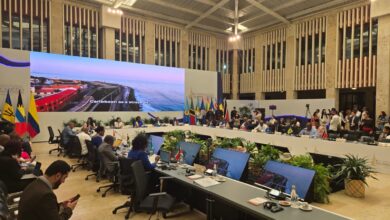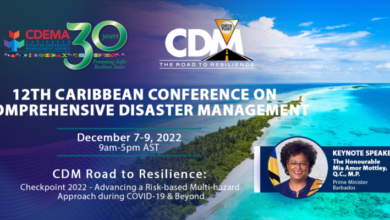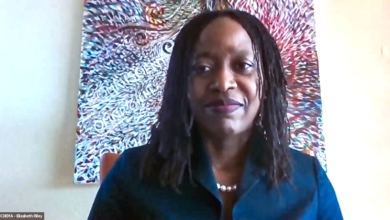MONTREAL, Mar. 9, CMC – Head of the Caribbean Disaster Emergency Management Agency (CDEMA) says the region needs to marry its indigenous solutions to disaster risk management with modern technology.
Ronald Jackson was a panelist in a forum discussing the linkages between disaster risk reduction, climate change and sustainable development, at the 5th Regional Platform for Disaster Risk Reduction in the Americas about to wrap up here.
In an exclusive interview with the Caribbean Media Corporation (CMC) after the discussion Jackson, said the older folk in the region knew what to do to survive and bounce back with minimal damage from major events like storms and earthquakes.
“We’ve recognized that in the old days, our fore parents…had to deal with flood conditions and they survived them very well. There were simple things in terms of how they pulled their beds and other valuables out of the flood space in the house in particular,” contributed to their surviving the storms with minimal loss.”
He added that the way they co-existed with the natural environment was also very instructive.
“That knowledge of having to face those adverse conditions and surviving them and coping through them and being able to bounce back to where they were before, that was evident in our society in the past. It has subsequently disappeared.”
The CDEMA head told CMC that even as the region talks about building resilience the focus is mainly on modern science.
“We’re talking about knowledge but a lot of our knowledge is simply focusing on the new science without integrating some of these indigenous knowledge and experiences and coping practices of our communities.”
He said the education sector is primarily responsible for marrying the indigenous solutions with the new science.
“This idea of separating culture from education is something that needs to change. Culture and education need to be hand in hand,” Jackson said.
“The way to change culture and behavioral practice is through knowledge and so it’s not only about teaching people ‘new’ knowledge but it is how you infuse some of the old practices with the new knowledge.
Jackson said societies and governments now need to strike “that balance between legislation and enforcement, looking at our culture and how we begin to reshape our cultural norms and using education as that vehicle for shaping our cultural norms.”
“Unfortunately our society has drifted so far from where we were, as a society that understood risks and had a culture of risks…to a society that is now trending a little bit away from that understanding and in that regard we’re going to have to use the carrot and the stick.”
He is suggesting the application of incentives for people and businesses that use disaster risk reduction strategies in their economic developments.
“We are going to have to apply incentives …in using tools like tax relief where we can for better practices; so you reward a developer who wants to put things that is going to create jobs, but put it in such a place that you’re going to reduce risks.”






